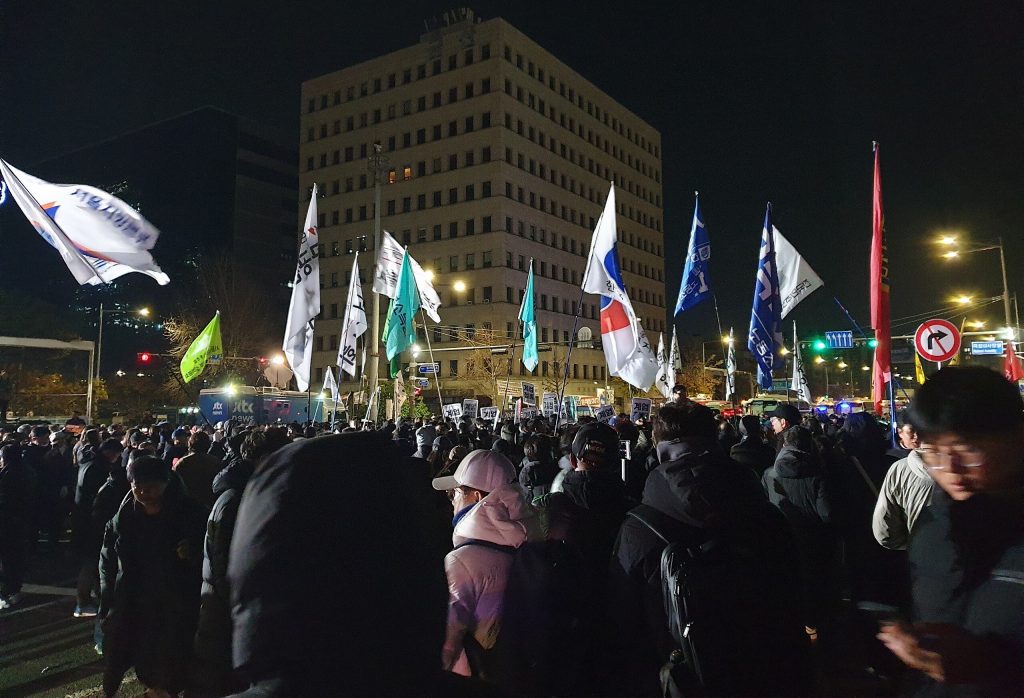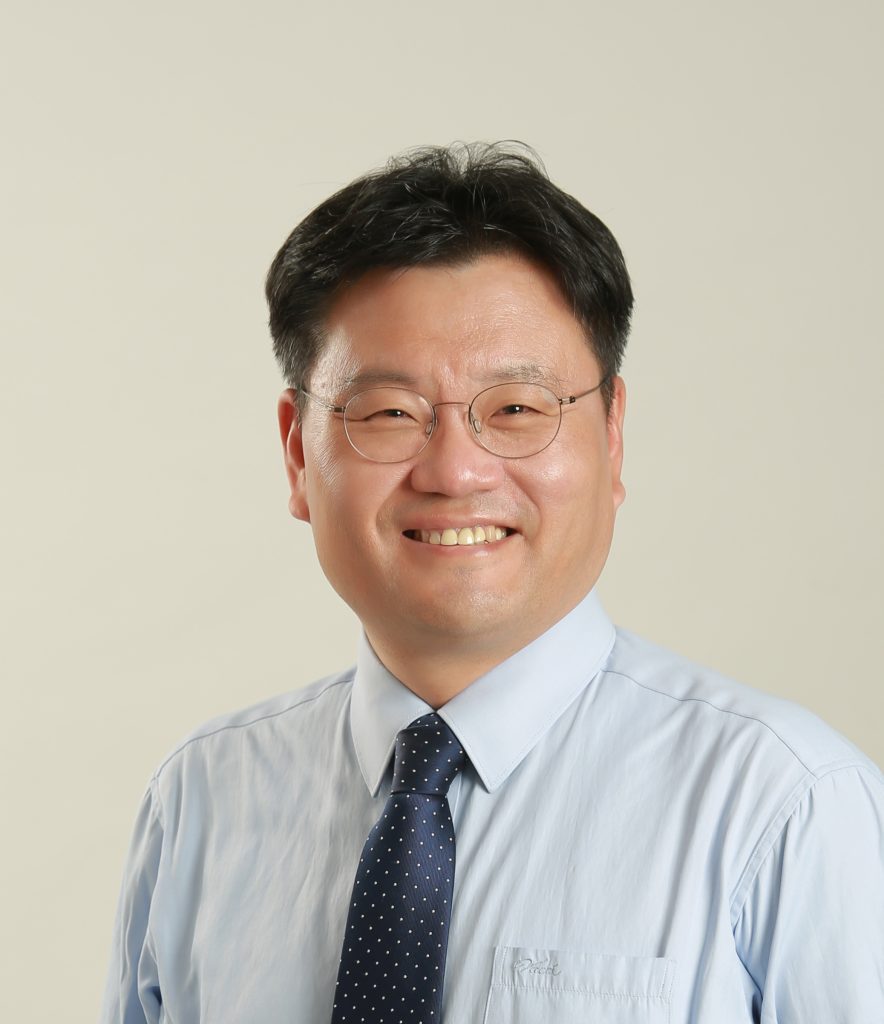A Stress Test for South Korea’s Democracy: Conservatism’s Authoritarian Relapse
The South Korean Constitutional Court has now unanimously confirmed the removal of the 12th president, Yoon Suk-yeol. This marks the end of the nearly four-month-long stress test for South Korean democracy. But has the democratic crisis been overcome as well?
South Korean democracy’s ongoing stress test began on December 3, 2024. In a nighttime speech, President Yoon Suk-yeol declared martial law, issued a decree banning political gatherings and suspended freedom of the press. Troops were sent to surround the parliament building and prevent political activities. In the decree, Yoon accused the opposition Democratic Party of Korea (DPK) of “anti-state activities”. The opposition wanted to paralyze the government by boycotting political measures and dismissing ministers one after the next. The state of emergency, it said, was necessary to protect the country’s free and democratic order from “pro-North Korean anti-state forces.”
This unconstitutional move failed after just six hours due to solid political resistance. Despite the lockdown of the parliament building, 190 MPs gathered within two hours of martial law being imposed and voted unanimously to lift it. Thousands of citizens also gathered in front of parliament and, as a protest, formed a protective wall for the members of parliament. This was a further demonstration of the vitality and strength of South Korea’s democratic civil society, which has developed over decades of struggling against dictatorship.
Soon after martial law was lifted, a wealth of evidence and testimonies emerged suggesting that Yoon intended to create a constitutional crisis through the extensive use of military force. Shortly before this, Yoon, who has long been criticized for his authoritarian governing style as well as various accusations against his wife, was cornered by the opposition over alleged ties to a shady political broker who is said to have influenced the nomination process of Yoon’s People Power Party (PPP) and manipulated polls in the run-up to the last parliamentary elections.
In desperation, Yoon resorted to a conspiracy theory, which was spread by far-right media and YouTube channels. He claimed that the last parliamentary election, which his opponents won overwhelmingly, had been systematically manipulated by a conspiracy between the opposition party, officials close to it and the Chinese government.
A focus on the judicial system
On January 26, 2025, the president was officially charged with attempting to overthrow the government. The Constitutional Court justified the decision to remove the president by stating that there was no national crisis and that the president had violated South Korea’s democratic constitution by imposing martial law, thereby unsettling Korean society.
As the Bertelsmann Transformation Index (BTI) points out, the Constitutional Court has established itself as an effective guardian of the constitution since it was founded in 1989. In addition, institutions such as the anti-corruption authority CIO, which played a decisive role in Yoon’s arrest, support the trustworthiness of the political system. South Korea achieved a score of 8 out of 10 in the BTI “Prosecution of office abuse” indicator.
A large part of Korean society is currently in a celebratory mood. People are celebrating the resilience of Korean democracy, which has once again been demonstrated. The new presidential election is scheduled for June 3. Nevertheless, it is too early to declare the democratic crisis over.
Unlike the impeachment of Yoon’s predecessor Park Geun-hye in 2017, when Korean society voted almost unanimously against the president accused of corruption and abuse of office, Korean society now finds itself starkly divided.
The PPP boycotted the first vote on the impeachment and remained reluctant or opposed to the subsequent votes. Meanwhile, Yoon’s supporters mobilized mass protests in Seoul and other major cities, with tens of thousands defending the imposition of martial law and calling on the Constitutional Court to reject the impeachment. On January 19, the day Yoon’s arrest warrant was issued, hundreds of supporters even stormed the courthouse. His supporters also continued their personal attacks on the constitutional judges. Numerous influential PPP members of parliament have expressed their sympathy for the demonstrators. Every Saturday, downtown Seoul saw demonstrations both for and against the impeachment. On the day of the Constitutional Court’s decision, the police issued an emergency warning to prevent a clash between opponents and supporters of the impeachment process.
A quick resolution of the polarization in Korean society, which became evident through the court process, seems unlikely. There are many reasons to believe that the societal divide will continue to burden South Korea’s politics even after the Constitutional Court’s decision. After all, there is more behind the radicalized demonstrations of Yoon’s supporters than extreme right-wing agitation. In some polls, the imprisoned president’s popularity grew and the ruling party was ahead of the opposition, even if the conservative voices may have been over-represented. Yoon’s supporters are even demanding his return to the presidency – similar to Trump – although this is not legally possible.
Stark divisions with historic roots
Korean society’s emerging split has deep roots. For four decades, from the end of the Korean War until democratization in the late 1980s and early 1990s, authoritarian regimes relied primarily on militant anti-communism based on a clear distinction between friend and foe to legitimize themselves. This was combined with rapid, state-directed economic growth that focused on the large family conglomerates. This ideology is still strongly held by the older generation (those over seventy), whose mentality was strongly influenced by the threat of poverty and North Korea after the Korean War. They are irreconcilably opposed to currents in society that demand more welfare and redistribution.
The hostility will further complicate the already difficult task of social integration in South Korea. In just six decades or so, the country has developed from one of the poorest countries in the world into a highly developed industrial and economic nation. The accompanying rapid social transformation has presented South Korea, like other highly developed countries, with new challenges, such as balancing the interests of the various social classes and groups. The far-reaching ideological radicalization, which threatened to escalate into an armed declaration of war with the imposition of martial law on the evening of 3 December, hampers productive discussion and the necessary social reform.
Regressive conservatism and polarization
The intransigence of conservative politicians is a significant aggravating factor. Even after the country’s transition to democracy following the 1987 uprising, a number of conservative forces in South Korea have been unable to break free from their authoritarian ties. They have repeatedly stoked the desire for a strong hand and launched McCarthy-like smear campaigns when necessary. After Park Geun-hye’s impeachment, conservatives were expected to reorient themselves. Instead, however, they have shown a regressive tendency by clinging to the so-called tarmac base, the far-right wing, to consolidate their support base. The behavior of conservative politicians defending Yoon’s martial law is particularly troubling because it will exacerbate the ideological weakness of conservative politics in the medium to long term.
This regression of the conservative party will pose a huge obstacle to reforming the political landscape. The two-party system, which dates back to the authoritarian era, is increasingly met with dissatisfaction and criticism from citizens: they want an alternative to the current dual system and its constant confrontation. Polarization means that elections are no longer decided between parties but between ideologies. Forces that actually hold differentiated positions come under pressure to “rally around the democratic party” in order to protect democracy from authoritarianism. In such a polarized political environment, there is little room for dialogue or mutual understanding.
Bleak prospects for a necessary overhaul of conservatism
The decisive factor for the development of Korean democracy and its stability will be whether the conservatives in South Korea halt their backward slide and turn to a political vision that leaves room for the interests of all social classes within the democratic system. All those who long for a change in Korean politics must therefore primarily hope for a reorientation of the conservatives.
Unfortunately, there are currently no signs that the conservatives will pull off such a shift. At the last impeachment hearing on February 26, the deposed president again justified the imposition of martial law as an act to save the country from the “communists” – by which he means the opposition as well as North Korea and China. He failed to make a serious apology for his breach of the constitution and the law. Outside the Constitutional Court, meanwhile, his supporters gathered en masse and demanded that the proceedings be dropped. On the streets, the PPP put up polarizing posters reading “No to Lee Jae-myung” (the chairman of the DPK).
The clear decision of the South Korean Constitutional Court regarding Yoon’s impeachment seems to have had little impact on the authoritarian mainstream of the PPP so far. Yoon’s internal party supporters are calling those lawmakers who voted for the impeachment procedure traitors and are even demanding their expulsion from the party. Instead of seeking a new direction for conservative politics, they are urging the formation of a united front against Lee Jae-myung. The goal is to maintain control over the government.
Recent polls have shown that the supporters of the PPP are most strongly aligned with those right-wing politicians who have consistently defended Yoon’s imposition of martial law. Yoon’s supporters are already planning a new campaign under the slogan “Reset Korea, Yoon Again” to position a successor who will continue his political line. Given the current dynamics, many observers doubt that the struggling party will fully detach itself from these extreme forces. Yoon Suk-yeol himself, who bears the greatest responsibility for the current crisis, shows no signs of remorse. A sincere apology to the public is still absent. Instead, he sends encouraging messages to his most radical supporters and announces his intention to continue fighting alongside them. South Korean democracy thus remains under pressure – the political storm is far from over.


Thank you for the article, Bee Yun.
The situation shows the resilience of Korean democracy. I suggest a national dialogue to bridge divided views.